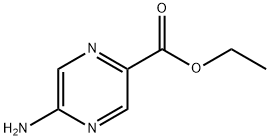For fitness enthusiasts and those who are conscious about their nutritional diet, several questions often arise. Does the source of protein, whether it's from plant-based or animal-based foods, significantly impact muscle building speed and quality? Is it crucial to evenly distribute the daily protein intake across three meals, or can a different pattern also support muscle growth effectively? And how exactly does the amount of protein consumed daily affect muscle growth? Are there specific thresholds or optimal ranges that one should aim for?
Muscle Growth on Plant-Based vs. Meat Diets: Which Works Better?
Related Products More >
-
- 9010-10-2
- CNY equest For Quotation
-
- 9010-10-1
- CNY equest For Quotation
-
- 9010-10-0
- CNY equest For Quotation
-
- 96690-41-4
- equest For Quotation
- 25kg drum
-
- 93615-44-2
- equest For Quotation
- 25kg drum
-
- 91082-88-1
- equest For Quotation
- 25kg/Cardboard Drum
-
- 9068-59-1
- equest For Quotation
- 1kg Aluminum foil bag
-
- 9064-67-9
- equest For Quotation



 沪ICP备2021018848号-5
沪ICP备2021018848号-5

What about spreading your daily protein intake evenly across three meals? Turns out, that doesn't matter either. The study split the participants into groups. Some ate about the same amount of protein in three meals, while others had different amounts in five meals, with more protein towards the end of the day. And guess what? It didn't affect muscle growth speed at all.
Now, regarding the amount of protein, the study also looked at whether an adequate and proper daily protein intake impacts muscle gain. The researchers gave the participants different protein - rich diets, but as long as they got enough good - quality protein, the type of diet didn't matter for muscle growth.
The researchers did this study with 40 healthy, active adults aged 20 - 40. They made sure everyone's nutrition was standardized with a 7 - day "habitual diet" first. Then they randomly put them into vegan or omnivore groups. The omnivore group got about 70% of their protein from animals like beef, pork, chicken, dairy, and eggs. The vegan group had their amino acids balanced to ensure they got complete proteins.
They used "heavy water" with deuterium (a stable isotope of hydrogen) to track how amino acids got into the muscle tissue. They took muscle biopsies at the start and end of the trial. And that's how they found out that whether you're vegan or omnivore, and how you distribute your protein throughout the day, doesn't really affect muscle protein synthesis or growth.
So, if you ask me (or Professor Burd), what's the best food for muscle gain? It's whatever you eat after your workout, as long as it has enough good - quality protein. Whether it's plants or animals, three meals or five, it's all good as long as you're hitting that protein goal!
A study published in Medicine & Science in Sports & Exercise compared vegans and meat-eaters doing strength training for 10 weeks. Both groups ate about 1.6–1.8g of protein per kg of body weight daily (way more than needed), and guess what? Their muscle growth was basically the same. But here’s the catch—the vegan group got most of their protein from supplements, which isn’t how most people eat in real life.
So researchers did another test with real food—vegan meals (like beans, tofu, nuts) vs. meat-heavy meals (beef, eggs, dairy). They also checked if spreading protein evenly across meals mattered. Turns out, it doesn’t. Whether you eat protein in 3 meals or 5, or even if you load up at dinner, your muscles don’t care. The key? Just hit your daily protein target (around 1.1–1.2g per kg of body weight is enough for most lifters).
Bottom line: Animal or plant protein? Doesn’t matter. Meal timing? Doesn’t matter. What does matter? Eating enough total protein from any good source. So if someone asks, “What’s the best food for muscle?” the answer is simple: Whatever you enjoy that gives you enough protein. Chicken or chickpeas—your gains won’t know the difference.